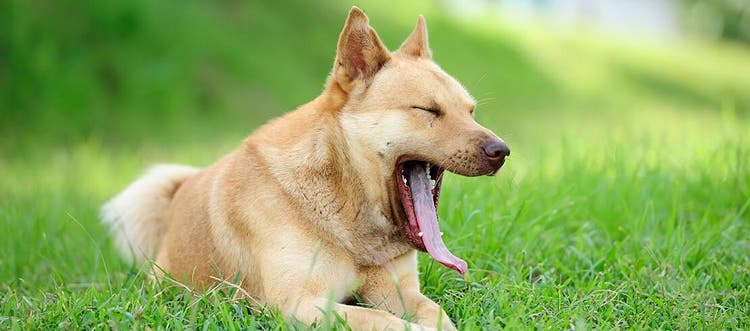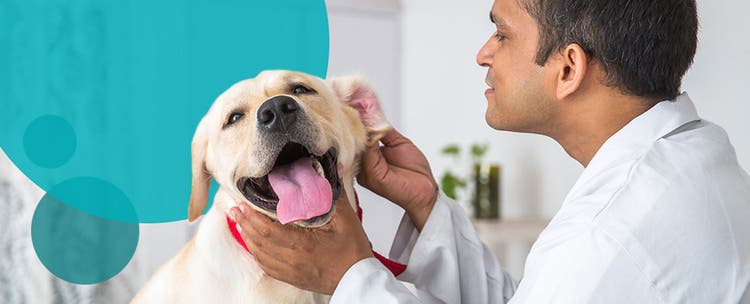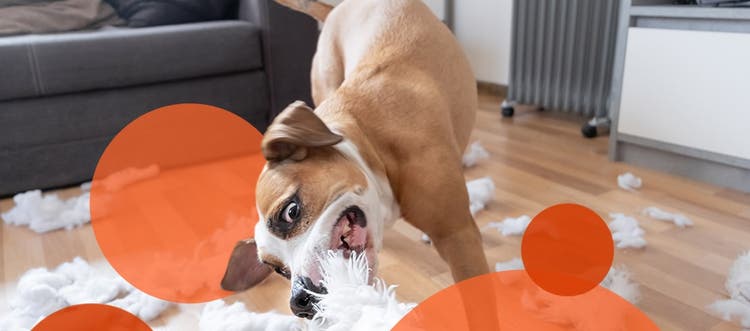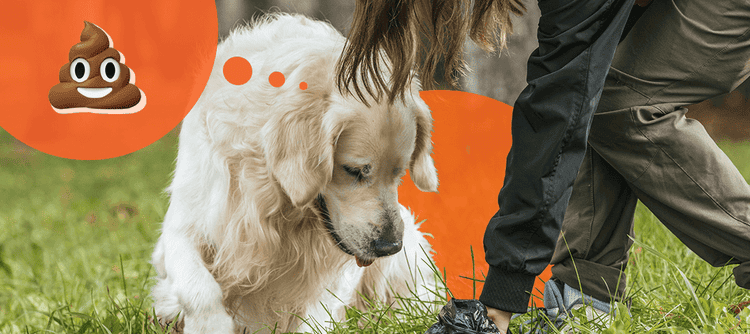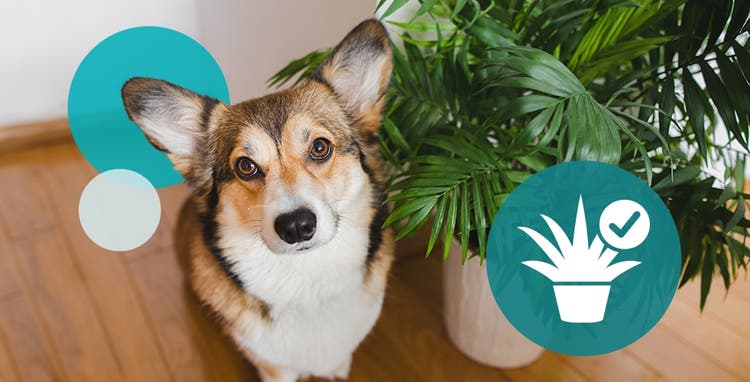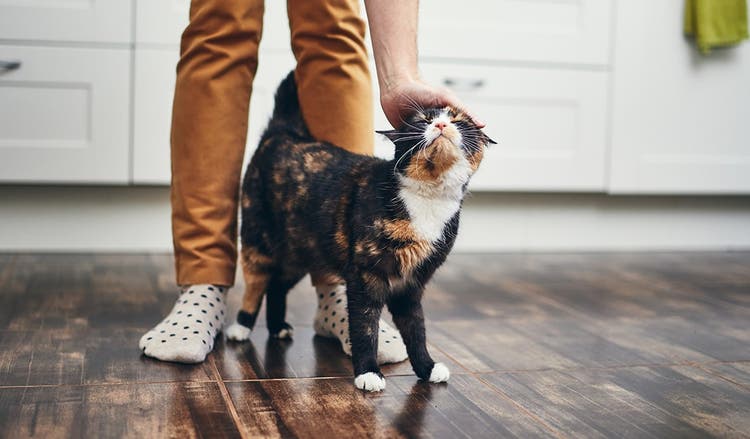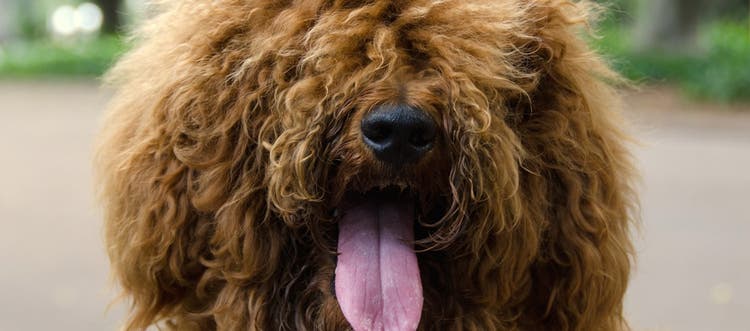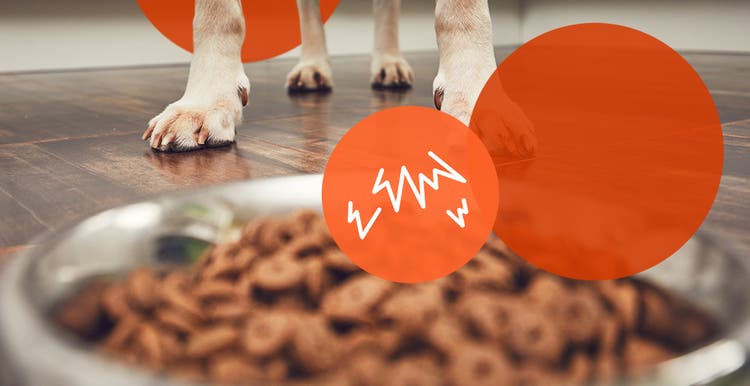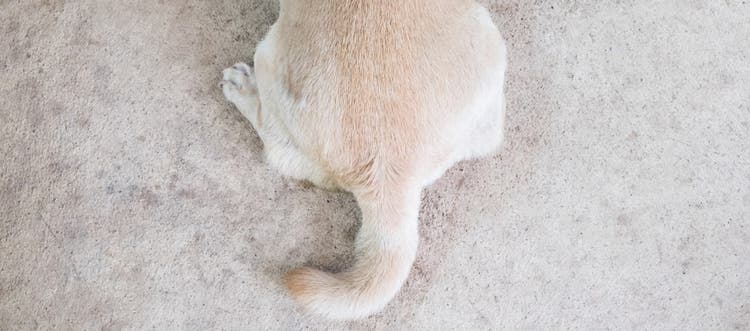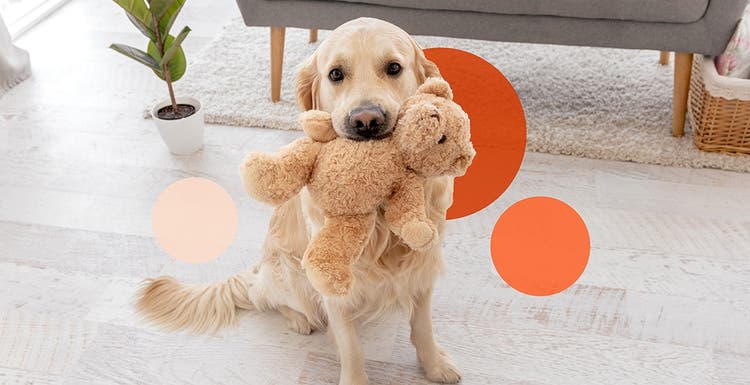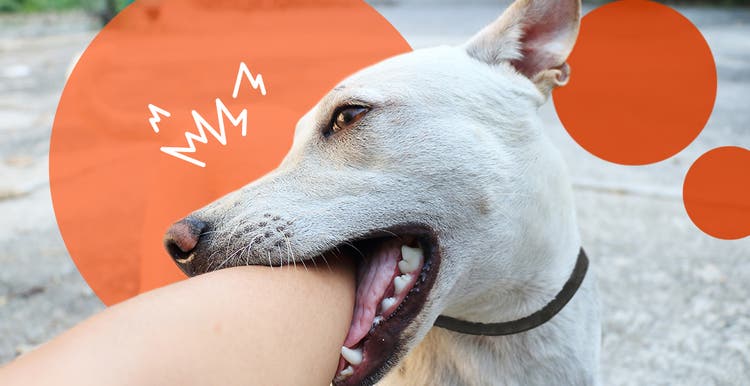Explore six quirky dog behaviors.
Dogs have long been loved companions. But sometimes your pet’s behavior may leave you wondering, What is my dog trying to say? Often, quirky dog behaviors are forms of communication. Let’s look at six unusual things your dog may do and why, and what you can do to break any habits you may find annoying.
Why Does My Dog Stare at Me?
When you move from your desk to your comfy chair, or maybe just leave the room and return, you might notice your dog watches you the entire time. So, what is so fixating about you that your dog can’t drop their gaze? Here’s what may prompt your dog to stare:
- Your dog wants to know what is going to happen next: It doesn’t take long for dogs to pick up on your habits and behaviors. If you’re walking to the pantry, that might mean they’re about to get a treat. If you pick up the leash, that definitely means they’re going somewhere. And a trained dog will often stare waiting for a command.
- Your dog needs — or wants — something: If your dog brings you a toy, sits and stares, it’s pretty obvious they want to play. If your dog is staring at you while sitting next to the door, it may mean they need (or want) to go out. And if you dog is staring at you while you’re eating, it likely means your dog is hungry or jealous and wants what you have.
- Your dog is being territorial: Some dogs may exhibit resource guarding while eating or playing with a toy. Signs of resource guarding include unbroken eye contact and sometimes aggressive behavior, such as soft growling, stressed body language or bared teeth. If you notice your dog staring, be attentive for other signs of resource guarding. Be sure to talk to your vet or a professional trainer about any concerning behavior.1
- Your dog is bonding with you: If your dog is otherwise relaxed (their ears are floppy, they seem playful, etc.) and they are staring at you, chances are they are locking eyes to strengthen your bond. A lot can be said with the eyes when you can’t exchange words!
What Can You Do If Your Dog Is Staring at You Too Much?
Be mindful of how you react to your dog’s stares. After all, the phrase “puppy dog eyes” exists for a reason. If you can’t resist those sweet eyes pleading for a nibble of food, you’ll deal with a dog that is constantly begging at the dinner table. Persistent staring isn’t always an efficient way for dogs to tell humans what they need, either. Your dog may need help finding a more effective way to get your attention. Consider providing some communication tools for the important stuff — like tying a bell to your door and training your dog to ring it when they want to go out.
Why Does My Dog Follow Me Everywhere?
Do you ever feel like your dog is your shadow? Here are a few reasons your dog may follow you wherever you go:
- Dogs are social animals: The theory that dogs are pack animals is now highly contested.2 What’s not contested, however, is that dogs like to be around other companions — and outside of dogs, that means you, their human companions.
- Your dog thinks you are their mother: In the absence of a dog mom, puppies can “imprint” on their owners, which means they look to one person in the home as their mother.3
- Your dog knows they will (eventually) get something out of it: Dogs are smart. If, after following you around for a while, your dog usually gets attention in the form of play or a treat, your dog is going to keep following you, ever-more hopeful for similar behavior.
- Your dog is frightened or anxious: If your dog is frightened or experiencing anxiety, they may follow you around as a form of comfort. These difficult feelings can be triggered by strangers in the house, during thunderstorms, after loud noises or in other unfamiliar situations. Or they may be anxious that you’re leaving — which means they may be experiencing separation anxiety once you’re gone. Talk to your vet if you’re concerned.
What Can You Do to Stop Your Dog from Following You Everywhere?
Sometimes increased exercise and new toys may be all you need to break the habit. Pay attention to how you react, too. Ignoring the behavior is best — acknowledging it in any way (via attention or scolding) will only reinforce the behavior. Establish rules and routines regarding walks and treats. If multiple people live in the house, make sure everyone spends time with the dog. Note the situations that trigger your pup’s anxious or fearful following. You can use this information to prepare ahead of time, help your dog acclimate or bring up any concerning behavior patterns with your vet.
Why Does My Dog Lick Me So Much?
You might laugh when your dog licks you, calling them kisses. Your aunt might back away and shriek. No matter how someone feels about getting licked, most dogs do it! Whether you love the behavior or do your best to avoid it, you have probably wondered: Why do dogs lick so much?
- Your dog is tasting you: Licking could be a way to find out what your skin tastes like. Maybe you’re wearing a sweet-smelling lotion, you just ate something enticing or you just got back from a run and your sweat is making your skin a bit salty.
- It’s in their genes: Researchers have reported wild puppies licking their mothers to get them to regurgitate their food.4 Dogs don’t have hands or fingers like humans, so it’s natural for them to rely on their mouth and tongue while exploring their surroundings — and that may include licking you!
- Your dog expects a reaction: Whether that’s an “Oh, you’re such a good boy!” and a pat on the head or an “Ew, he licked me!” licking almost always garners a response. Many dogs will use their mouth to get (and keep!) your attention.
What Can I Do If My Dog Is Licking People Too Much?
Check in with your vet if your dog is licking excessively (especially if self-licking is involved). Otherwise, try redirecting with a simple command (such as “sit”) and reward that behavior.
Why Does My Dog Lay on Me?
Many dogs and their owners love to curl up together on the couch. Some pet owners sleep with their dogs. And dogs, no matter their size, often end up curled next to, or laying on, their owners, softly (or loudly) snoring away. Why do dogs like to lay on humans?
- Your dog is seeking warmth: Your body gives off heat and laying on you provides warmth, especially during chilly winter nights. For dogs, trusted humans can be a cozy chair with seat warmers included.
- Your dog is seeking comfort: Feeling each other’s heartbeat and rhythmic breathing can be sources of comfort. If they’re feeling anxious, they may also crawl on top of you for a greater sense of security.
What If I Don’t Want My Dog to Lay on Me?
If you want your couch or your bed to be off limits, the earlier you make that rule, the better. If you’ve been sharing a bed with your dog and need to stop because it disrupts your sleep, teach your dog to sleep somewhere new, like a crate. The process is akin to transitioning a child from a crib to a toddler bed. Start by setting up a comfortable place for your dog to sleep and consider adding a warm blanket just out of the dryer to simulate your body heat.5 Your dog may protest the change at first, but over time they will adjust to the new routine. If they’re still not acclimating well after a few nights, talk to your vet.
Why Does My Dog Put Their Paw on Me?
This behavior can feel almost human-like. You’re petting your dog and the next thing you know they’ve put their paw in your hand or up on your shoulder. If it feels like your pet is communicating with you, that’s because they are. So, what is your dog trying to say?
- Your dog has a need: Your dog may need to go outside or want dinner.
- Your dog wants attention: This could range from a simple pat on the head to tossing a ball around or going for a walk around the neighborhood. Pawing often equals boredom.
- Your dog wants to give or receive comfort: Dogs may paw you because they are seeking comfort (maybe it’s storming outside) or because they are offering comfort (maybe you’re crying). That companionship and love is one of the best parts of dog ownership.
How Do I Stop My Dog from Putting His Paw on Everyone?
Don’t reward the behavior. If you give your dog a treat after pawing, your dog will likely paw anyone and everyone hoping for another goodie. As an alternative, you might also try to teach your dog to shake. Once they learn this trick, your dog may associate placing a paw in your hand only upon hearing the “shake” command. Keep your dog’s claws trimmed and wipe down their paws after they’ve been outside to avoid any mess or sharp scratches while they get out of the “pawing” habit.
Why Does My Dog Lean on Me?
For centuries dogs have leaned on humans. In fact, spaniels in medieval castles were used as bed warmers, literally trained to lean against their royal owners to keep them warm.6 In addition to warmth, here are some other reasons dogs like to lean.
- Your dog is seeking security: Dogs may lean because they’re seeking security from you or they’re lovingly guarding you, acting as your protector to keep you safe.
- Your dog is expressing love: Think of a lean as a hug. Your dog may be communicating their affection for you.
Can I Stop My Dog from Leaning on Me All the Time?
Think about the circumstance. If your dog leans against you when another dog is present, your dog may be trying to protect you or may be seeking protection. If your dog is in a potentially stressful situation (such as a trip to the vet), they may feel anxious. Provide comfort and, when possible, remove your dog from the situation. If your dog’s anxious leaning is concerning, talk to your vet about potential remedies.
Although dogs may exhibit quirky behaviors from time to time, chances are your dog is simply trying to communicate with you. And how lucky that we can learn from these behaviors and, in our human ways, communicate back!
Resources
- Karetnick, J. “What to Do When Your Dog Steals and Guards Items” (September 6, 2022). American Kennel Club. https://www.akc.org/expert-advice/training/resource-guarding-why-does-my-dog-guard-objects/
- Cordoni, G., & Palagi, E. (2019). Back to the Future: A Glance Over Wolf Social Behavior to Understand Dog-Human Relationship. Animals : an open access journal from MDPI, 9(11), 991. https://www.ncbi.nlm.nih.gov/pmc/articles/PMC6912837/
- “Why Does My Dog Follow Me Everywhere?” (accessed November 29, 2022). PetMD. https://www.petmd.com/dog/behavior/4-reasons-your-dog-follows-you-everywhere
- Robins, M. “Why Is My Dog Licking Me?” (September 21, 2022). American Kennel Club. https://www.akc.org/expert-advice/advice/why-is-my-dog-licking-me/
- “Is it ok to share your bed with pets?” (accessed November 29, 2022). Animal Humane Society. https://www.animalhumanesociety.org/resource/it-ok-share-your-bed-pets
- Devlin, J. “Breeds and Royalty: A History” (November 30, 2017). Continental Kennel Club Inc. https://ckcusa.com/blog/2017/november/dog-breeds-and-royalty-a-history/
